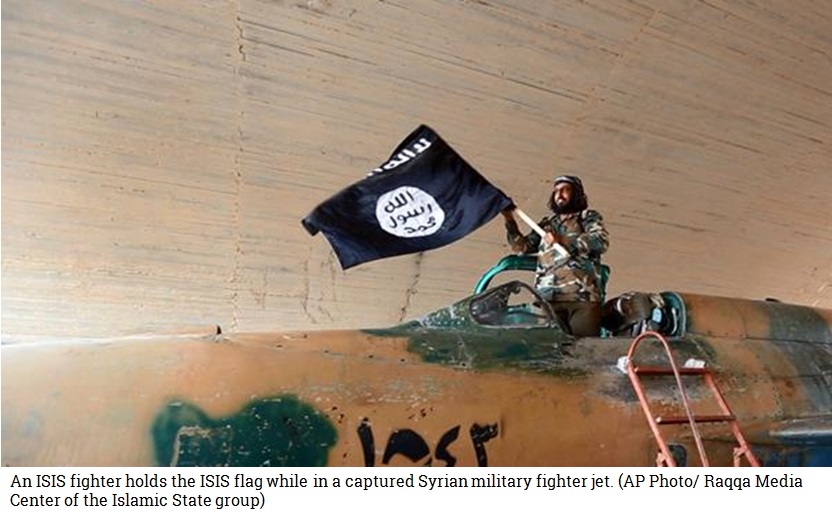Here’s Why People Aren’t Only Using 'ISIS' Anymore
By:
The group that calls itself the Islamic State (IS) is back in the news again after having claimed responsibility for a deadly string of attacks in the French capital on Friday—the latest and most widely-covered in a series of recent attacks by the terrorist group.
But with harrowing news stories also comes the inevitable parade of names by which the group is called: ISIS, ISIL, Islamic State, or the less-used Daesh. Those monikers all sufficiently describe the same group, but they also have different political connotations, and are often squabbled over in the news media and in political circles. Some have even been pushing to use one over the other as a means of protest in the continued struggle against the group's unique brand of terrorism.
Related: These charts show why and where Islamophobia exists
Increasingly, as Vox notes, Daesh has become the nom de guerre (name of war) when it comes to the extremist group. It's the name French President François Hollande used when he described Friday's attacks as an "act of war," and it's how American officials, including Secretary of State John Kerry and President Barack Obama have referred to the group on and off for some time.
So if ISIS is by far the most common name people use to talk about the group in popular culture, why should we consider using Daesh instead?
What's in a name? And why should we care?
 An ISIS fighter holds the ISIS flag while standing in a captured Syrian military fighter jet. (AP Photo/ Raqqa Media Center of the Islamic State group)
An ISIS fighter holds the ISIS flag while standing in a captured Syrian military fighter jet. (AP Photo/ Raqqa Media Center of the Islamic State group)
As Vox explains, each iteration of a name or acronym the group uses generally has something to do with historical geography and influence. Though IS traces its roots to other well-known militant groups such as al-Qaeda, the names that float around today are more recent, reflecting territorial gains or projected ideology. ISIS, for example, stands for the Islamic State in Iraq and al-Sham—a geographic area that includes Syria. ISIL subs out al-Sham for the Levant, a broader area that overlaps with al-Sham.
The group calls itself as the Islamic State, as do many media outlets concerned with presenting up-to-date and accurate terminology. But some say that the name itself lends too much credence and officialdom to the group—this name also lends the idea that this group represents the Islamic faith, which for the large majority of the world's Muslims is a grotesque inaccuracy.
"Daesh" is becoming the preferred name for its somewhat derogatory connotation: the word daesh—an English spelling of "ISIS's" Arabic acronym, al-Dawla al-Islamiya fi al-Iraq wa al-Sham, or DAIISH—bears a striking similarity to the Arabic word "dahes," or "one who sows discord," according to the Guardian. In fact, the Associated Press reports, the name Daesh is so disliked by IS militants that it is banned in territory controlled by the group.
Related: Anonymous just declared war on ISIS
Essentially, it comes down to propaganda on both sides: the so-called Islamic State doesn't want negative associations muddling its recruitment strategies, just as politicians, government officials, Muslims, and some media organizations don't want to lend any unnecessary legitimacy to the group or tether it with popular notions of the Islamic faith. Saying Daesh won't necessarily have any significant ramifications in the broader struggle against the group, but some say that semantics are nonetheless important.
“This is not a state; this is a terrorist organization,” Ahmet Ogras, vice president of the French Council of the Muslim Faith told the New York Times last year after a French mountaineering guide was beheaded by Algerian militants with ties to IS. “I call them terrorists because that’s what they are. One has to call a dog a dog. One can’t play with words.”
